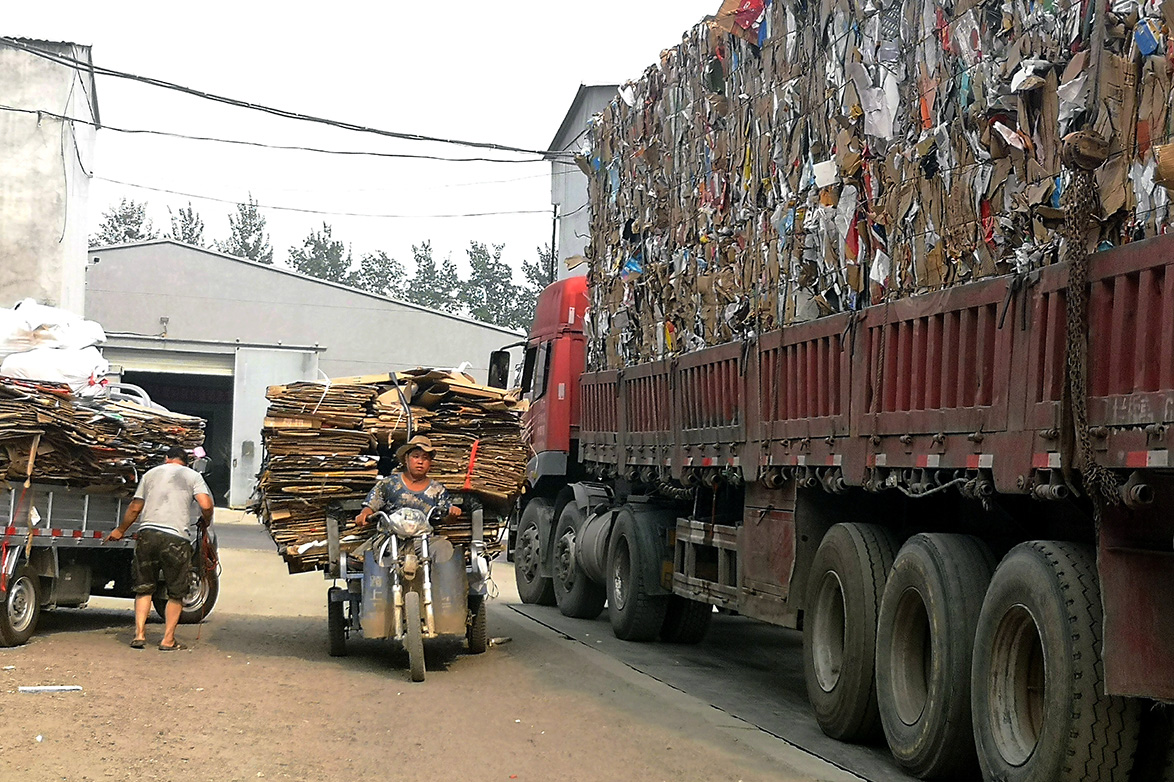'Junkman army' beats an untimely retreat


New approach
On July 3, the Beijing Municipal Commission of Urban Management said the city will follow Shanghai's lead in garbage sorting. Beijing's classification criteria differ from those in its eastern rival-whose 24 million residents produce about 28,000 tons of household waste every day-but punishments for offenders will be more stringent. Moreover, plans to revise household waste management have been included in the city's 2018-20 legislative program.
According to the regulations in Shanghai, garbage must be divided into four categories: recyclable waste; kitchen waste; hazardous waste; and residual waste. Individual offenders can be fined 200 yuan, while the penalty can be as high as 50,000 yuan for companies.
Trash-sorting programs are being accelerated nationwide. In June, the Ministry of Housing and Urban-Rural Development said cities at prefecture level and above must begin work on full domestic waste classification this year.
In addition, 46 major cities must establish systems for dumping, collection, transportation and disposal, and they must be operational next year. Cities at prefecture level and above must have these systems in place by 2025.
Collecting garbage is not easy work, because there are different types of recyclable trash. Many junkmen have more than 10 years' invaluable experience of sorting trash, according to Wang, the recycling center owner.
"For instance, every day we collect more than 30 types of plastic. Experienced junkmen can separate them quickly, but those skills take years to learn," he said.
Wu said the departed junkmen contributed greatly to the capital's development: "As long as a city needs to develop, waste will be produced and will need to be dealt with. There is no such thing as a high-end or low-end crowd."
Chen Liwen, founder of Zero Waste Village, an NGO that focuses on environmental protection in Beijing and surrounding Hebei province, said that in 2014, during the peak for the city's junkmen, about 90 percent of the capital's recyclable waste was collected. Now though, both the number of junkmen and the amount of trash being collected are falling fast.
Having studied trash sorting and junkmen in Beijing for about 10 years, she believes the collectors' contribution to the city's development should not be overlooked.
"As society develops, every industry is divided into different skills, and the collectors' skills should be better utilized," she said.
























